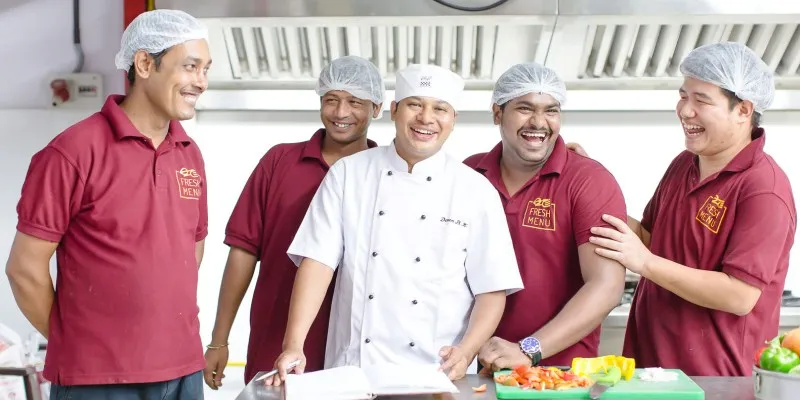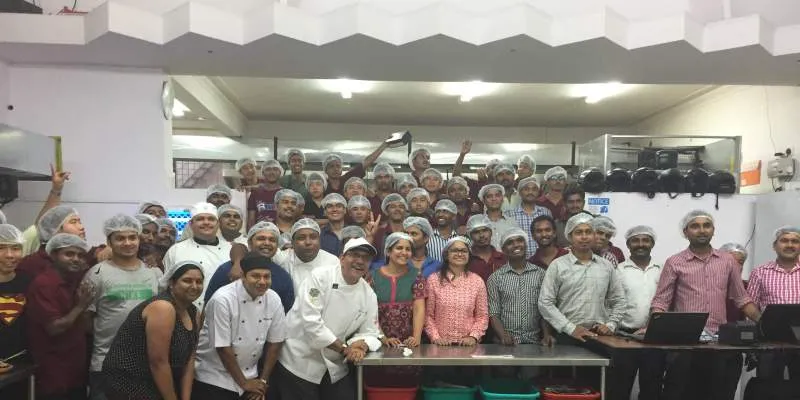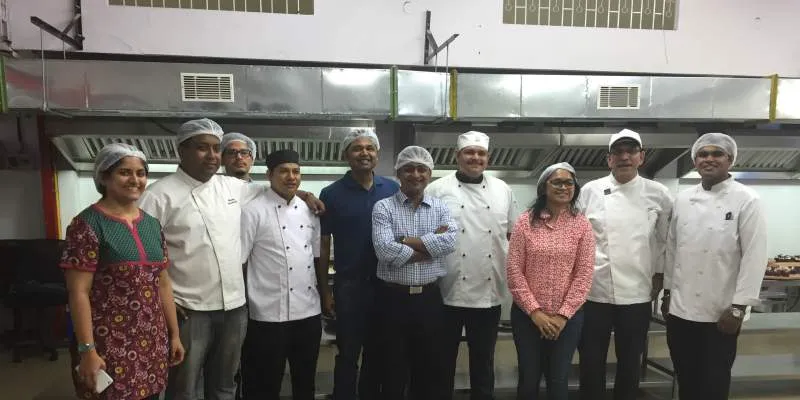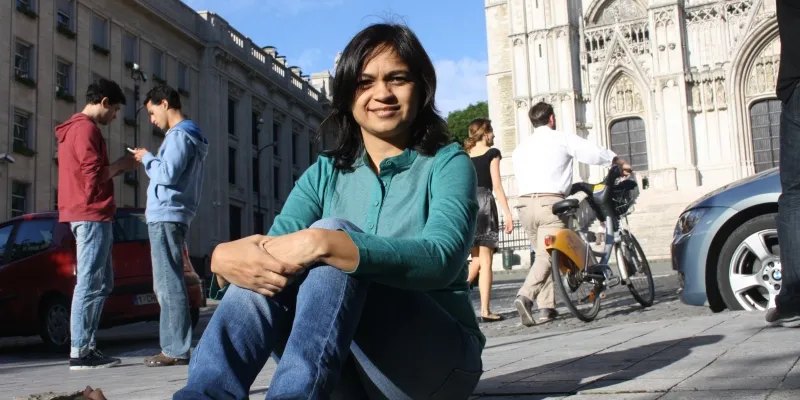Bengaluru-based FreshMenu to grow to top 10 cities by next year
We've all had our food cravings, be it regular mac ‘n cheese or an exotic platter of Peruvian food. The contemporary taste palate looks for food and cuisines that are slightly different from what we eat every day. Rashmi Daga, Founder and CEO FreshMenu, says, "Looking at the new generation, we realised that people are looking for food that excites them. It's something you might think of regularly but order maybe once or twice in a week."
For Rashmi, her foray into food business began only last year. A salesperson for most of her professional life, this IIM-A graduate believes that her learnings in sales have helped to great extent. "After working in sales in true-blue corporate companies, I decided to venture on my own and I bootstrapped a startup - afday.com. It was a platform of curated art and art forms," she says.
The venture, however, did not take off as she had hoped. So after shutting operations Rashmi rejoined the workforce and for close to one-and-a-half years, she headed the sales efforts for Bluestone and Ola cab. However, feeling the need to start up again, Rashmi decided to try her luck with the food business this time around.
The DNA of FreshMenu
Rashmi says that the business choice sprang from her own love for cooking food. But the restaurant model didn't seem scalable. So beginning with looking at the western markets, Rashmi thought of starting freshly-made, chef-cooked gourmet meals in a box. "We began with the prototype by setting up a functional kitchen, trying new recipes and testing it out in the market," she says, adding that they also had luck on their side to get it ready on the first go.

From the beginning, food was inextricably woven into the DNA and spirit of Fresh Menu, so Rashmi was particular that they needed to own the complete chain. From the ideation of the menu, to the ingredients, packaging and delivery, every step is owned by FreshMenu. "Setting service-level agreements and expecting standardised quality whilst outsourcing is difficult," she adds.
The first step, therefore, was getting the right vendors for the supply of ingredients; then came the task of convincing chefs to come on board. This, Rashmi says, was a bit of a challenge, as they had to get the chefs to buy into the idea behind FreshMenu. The next stage was setting up functional kitchens followed by designing perfect packaging and finally the perfect delivery chain.
"If you don't get the complete chain of customer experience perfect, you can't become a brand. And this, especially, is important if you're looking to disrupt the market," says Rashmi.

Adding a hyperlocal element
FreshMenu follows a hub-and-spoke model. So if you order from Indiranagar in Bengaluru, you get served from the Indiranagar kitchen. Thus, each customer gets served from a neighbourhood kitchen and has fresh food. The kitchens are set up in different locations based on surveys and research done by a team. After the kitchens become operational, locality-specific marketing is done.
There are 10 operating kitchens in Bengaluru -- Sarjapur, Whitefield, Marathahalli, Koramangala, Bellandur, Richmond Town, Indiranagar, JP Nagar, Hennur, and BTM Layout. The team intends to roll out kitchens across the city in the next few months and then go deeper into these markets.

"We've started prototypes in Mumbai and Delhi to gauge the market and optimise food palates and tastes," says Rashmi.
No one-size-fits-all approach
After setting up the food and the kitchens, packaging, according to Rashmi, has been the next nut to crack. She says that taking on vendors for the same doesn't work in all cases. Rashmi adds that at times the food is optimised for the packaging and at other points the food menu is decided and then the team scouts for the best packaging available in the market.
"Everything you want or desire isn't available in the market in the scale and size that you're looking for. There are times when vendors would want large quantities to be ordered, but as a startup you can't do that. Packaging is an ongoing process where you keep looking for something better," she says.

With regards to exploring eco-friendly packaging, Rashmi believes that currently what's available in the market is not scalable and cost effective. She adds in food delivery, boxes need to be air tight and have a tight lock facility, which the present eco-friendly packaging options don’t have.
Breaking down processes
Rashmi says that as a startup one is looking at how to grow fast: ways to put processes and solutions in place to scale. One’s looking at teams that can break down problems and solve them. "It's about having people who have the eye for detail and who are ops intensive," says Rashmi.
One of the challenges according to Rashmi is to get each setup to work independently and yet as a part of the whole. For that, the team stared working on a distributed system early on. The company set up operations in different locations quickly, especially when they saw traction and growth in one segment.
After their round of Series-A funding from LightSpeed Ventures in December, Rashmi says that team had confidence to roll out and build stronger teams. From January, the startup began opening kitchens every month. The team records a month-on-month growth of 30 to 40 per cent.
Consumer businesses are built on learnings
While there are strict quality measures, internal checks and customer testing in place, Rashmi believes that it's not possible to please ever single customer. She adds that this is more so in the food business, where palates and tastes vary.
However, feedback is monitored closely and the food is tweaked with where necessary. "We have a rotational menu, and we take every feedback given as means to improve and grow," says Rashmi. Also, to ensure that every person working at FreshMenu is aware of the challenges and ground realities, different members of the team go out on deliveries. There are times when chefs have gone into the market themselves to understand customer tastes and preferences.
Market space
A USD 50-billion market growing at 16 per cent YOY, the food business is, no doubt, one of the most competitive businesses in India. Over USD 3.5 billion has been poured into 380 disclosed deals in the first of half of 2015. Of the different startups that have raised funding twice in the first half of the year is Swiggy, a food tech startup. Kunal Walia of Khetal Advisors believes that 2015 is the year of foodtech in India.
Anand Lunia, Founder of India Quotient, says food today is going through the same disruption that Airbnb and Uber were causing in their industries. He adds that the demographics of the young population, double income families, expensive house-help and cultural acceptability of eating out are the big factors behind the market growth.







